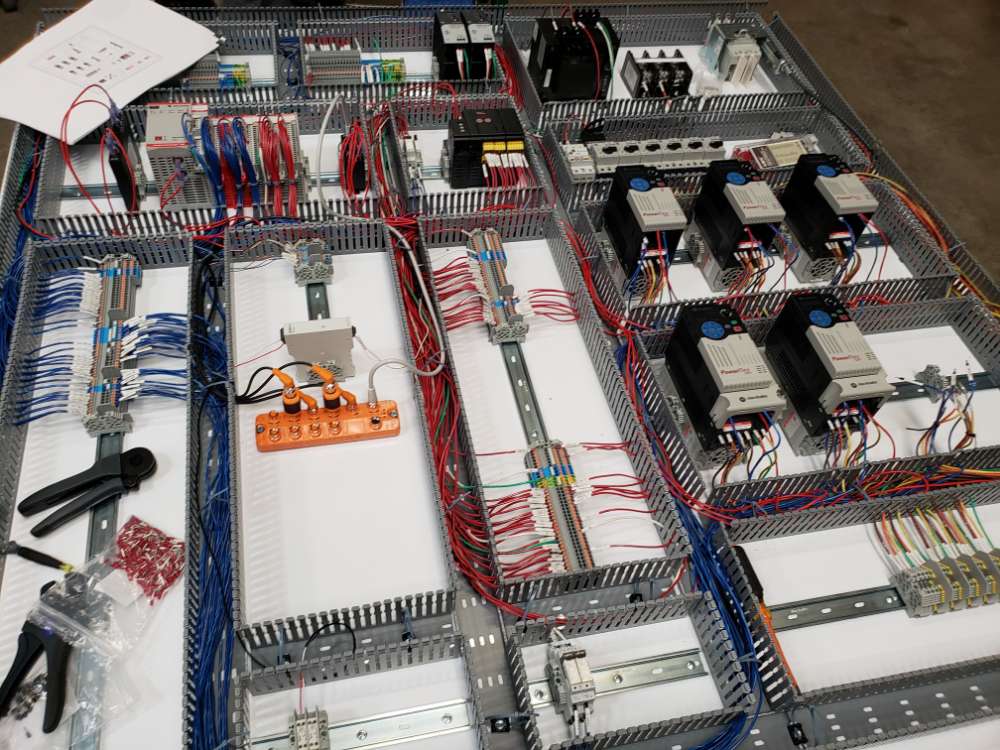Industrial electrical contractors today are not just handling basic electrical work and lighting installations. Their roles have significantly evolved to incorporate advanced digital technologies and intelligent systems. The integration of these modern technologies into industrial operations has expanded the scope of what these contractors must manage.
Now, they work on smart systems that control energy use and automated machinery operations. This change requires more knowledge and flexibility to keep up with the fast progress in industrial electrical areas.
New technology like IoT and automation is changing industrial electrical contracting in a big way. New technologies are changing industries by improving electrical systems. They are pushing the limits in high-voltage environments and complex equipment setups.
These advancements are revolutionizing the way industries operate. They are enhancing the efficiency and safety of electrical systems. Additionally, they are enabling more complex equipment setups to be utilized.
Industrial electricians need to always learn new things to handle complicated systems and make sure everything runs smoothly.
Currently, the industrial electrical services sector is witnessing significant trends that are shaping the future of electrical contracting. A major trend is the increasing demand for sustainable and energy-efficient solutions. Industrial electricians must now create systems that are efficient and follow environmental rules.
Electricians are using new methods and technology to save energy. They are also working to reduce carbon emissions. This helps support global sustainability goals. They promote green energy solutions.

The electrical contracting industry is experiencing significant growth, driven by increasing demand for advanced electrical installations and smart technologies.
–
According to a report by MarketsandMarkets, the global industrial power supply market in terms of revenue was estimated to be worth $10.8 billion in 2022 and is poised to reach $14.5 billion by 2027 [Source]
–
The U.S. Government has allocated $500 billion in federal grants, financing, and credits to bolster investments in new clean energy assets under the Infrastructure Investment and Jobs Act (IIJA) and the Inflation Reduction Act (IRA).
–
The U.S. Bureau of Labor Statistics predicts a 9.1% growth in electrician jobs from 2020 to 2030, surpassing the overall 7.7% growth rate projected for all occupations. [Source]
These statistics not only reflect the industry’s current health but also its trajectory towards integrating more sustainable and technologically advanced solutions. As more people want to save energy, the market for clean and renewable energy is expected to keep growing. Businesses and individuals can invest in green initiatives to help create a more environmentally friendly future.
Despite the positive growth outlook, industrial electrical contractors face several challenges that could impact their operations. One of the most pressing issues is the shortage of skilled labor. This is a critical factor in meeting the demands of expanding industrial needs.
Additionally, ongoing regulatory changes pose a constant challenge, requiring contractors to stay abreast of new standards and compliance requirements. New technologies are constantly changing. Contractors must keep learning and adapting to stay competitive and effective in their field.
Looking ahead, the future of industrial electrical contracting is poised to be shaped by several key factors. New technology and smart electrical systems will improve industrial operations by making them more efficient and intelligent.
Contractors should use IoT solutions, sustainable practices, and data analytics to improve efficiency and meet client expectations.
Preparing for these changes involves investing in education and training. It also means incorporating new technologies and adjusting business models to include a more integrated approach to electrical contracting.
Diverse Industries, One Trusted Partner
Safety means more than compliance; it’s our covenant with you.







Whether you’re coordinating your next project or proactively planning your plant maintenance, there’s no better time than right now to contact us.